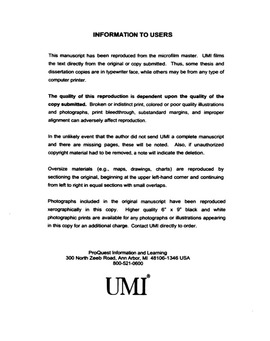| dc.contributor.advisor | Kramer, Eric, | en_US |
| dc.contributor.author | Dalton, Philip Damon. | en_US |
| dc.date.accessioned | 2013-08-16T12:18:28Z | |
| dc.date.available | 2013-08-16T12:18:28Z | |
| dc.date.issued | 2002 | en_US |
| dc.identifier.uri | https://hdl.handle.net/11244/420 | |
| dc.description.abstract | Swing voters are often neglected in the study of political advertising. Because swing voters constitute the single-most important group of voters, it behooves political advertising researchers to understand their reactions to advertisements more completely. This study examines swing voters by studying how they interpret political advertisements. The study specifically focuses on swing voters' responses to spots from the 2000 presidential election. Because little research has been undertaken to better understand this group of voters, the following approach is interpretive: This study constitutes an initial attempt at understanding them as voters. Data was collected and analyzed utilizing an ethnographic approach wherein subjects were shown political ads, asked to write responses, and participated in interviews that explored their reactions to the spots. An analysis reveals a consistent philosophy regarding politics. Swing voters are critical and active voters. They want to vote, yet without the framework of party or ideology, they have trouble settling on candidates. Analysis of interviews is followed by a hermeneutic explanation of the swing voter's horizon. Essentially, it is maintained that the philosophy of swing voters is a logical product of the values that viii underlie democracy. The act of democratic participation in the United States has developed to make the individual more important (relative to the interests of the group), yet it has placed a burden on the voter that makes it difficult to make decisions, given our culture's emphasis on informed and rational voting. | en_US |
| dc.format.extent | ix, 177 leaves ; | en_US |
| dc.subject | Presidents United States Election 2000. | en_US |
| dc.subject | Advertising, Political United States Public opinion. | en_US |
| dc.subject | Business Administration, Marketing. | en_US |
| dc.subject | Public opinion United States. | en_US |
| dc.subject | Mass Communications. | en_US |
| dc.title | Swing voters: A hermeneutic analysis of swing voters' interpretations of 2000 presidential campaign spots. | en_US |
| dc.type | Thesis | en_US |
| dc.thesis.degree | Ph.D. | en_US |
| dc.thesis.degreeDiscipline | Department of Communication | en_US |
| dc.note | Source: Dissertation Abstracts International, Volume: 63-01, Section: A, page: 0014. | en_US |
| dc.note | Major Professor: Eric Kramer. | en_US |
| ou.identifier | (UMI)AAI3038983 | en_US |
| ou.group | College of Arts and Sciences::Department of Communication | |
